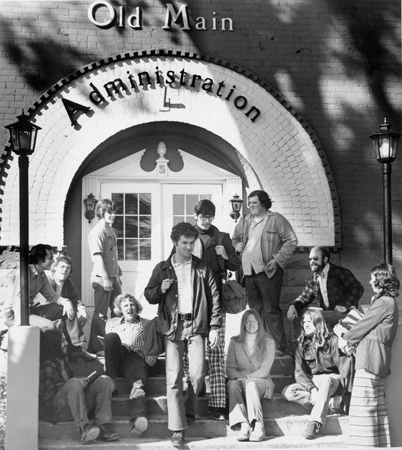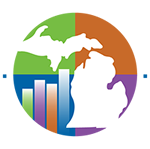Lake Superior State University is accredited by the Higher Learning Commission.
Lake Superior State University has maintained accreditation by the Higher Learning Commission (HLC) since 1968. This regional accrediting body was established in 1895 and currently oversees more than 1000 higher education institutions from 19 states.
- The Higher Learning Commission, 230 S. LaSalle Street, Suite 7-500, Chicago, IL 60604-1413. Phone: 312-263-0456; 800-621-7440. Fax: 312-263-7462. https://www.hlcommission.org
Programmatic Accreditation
LSSU’s individual academic program accreditations are granted by discipline-specific accrediting agencies. Specific program accreditations are outlined on the Program Accreditations page of this website.
What is accreditation?
Accreditation ensures that higher learning institutions are fulfilling their goals and serving their students and communities to the best of their abilities. Accreditation assures students that they will receive a quality education by attending an accredited college or university. Accreditation also ensures that an institution is eligible for federal financial aid funding, and it facilitates the transfer of credits from one accredited institution to another. LSSU’s accreditation through the Higher Learning Commission was re-affirmed in a Year Four Comprehensive Evaluation review in 2021.
How does re-accreditation occur?
HLC reviews institutions for Standard Pathway accreditation on a ten-year cycle, with a review focusing on quality assurance and continuous improvement for the institution. The ten-year review cycle for member institutions includes comprehensive evaluations in year four and year ten. As part of a comprehensive evaluation, the university prepares and submits an “Assurance Argument” to HLC with detailed narrative and documenting evidence showing how the institution fulfills HLC’s criteria for accreditation. The narrative encompasses every functional aspect of the institution, including educational activities, governance and administration, financial stability, admissions and student personnel services, resources, student academic achievement, organizational effectiveness, and relationships with outside constituencies.
A review team from HLC evaluates the evidence in the Assurance Argument, and that team visits the university to verify the information in the Argument through meetings with administrators, students, staff members, faculty members, board members, alumni, and community members. In addition to maintaining accreditation, this process also provides an opportunity for the university to identify areas needing improvement and to implement positive change.
Is every program accredited?
There are two types of accreditation: the institutional accreditation managed by the Higher Learning Commission (HLC), and programmatic accreditation specific to a degree program, or to a set of degree programs. In the larger sense, all programs are covered by the institutional accreditation through HLC. Programmatic accreditation organizations specialize in individual programs such as nursing, education, or engineering. Several LSSU programs hold discipline-specific accreditations in addition to the university-wide institutional accreditation.
What is the Higher Learning Commission (HLC)?
The HLC of the North Central Association of Colleges and Schools is the accrediting agency for many schools and colleges in our region of the country. Its role is to ensure students are receiving a high-quality education and that the institution is operating within the boundaries of its stated mission.
What is your part?
As an important member of the LSSU on-campus or off-campus community, you can provide information to the team of writers preparing the Assurance Argument and offer your feedback to the HLC Review Team. As the university prepares for its year-four or year-ten reviews, you can familiarize yourself with HLC’s criteria for accreditation and meet with the HLC Review Team when they visit our institution. Consider how you might answer questions or offer insights about your department or your experience at LSSU on matters such as:
- the impact of LSSU’s mission, vision, and strategic plan.
- how assessment is used to make continuous improvements, guide decisions, and allocate resources in your department or at the university.
- how you contribute to the decision making processes in your department.
- the overall “sense of belonging,” diversity, and inclusivity at LSSU.
To learn more about the importance of assessment and the role it plays at LSSU, see our assessment page for more information.


